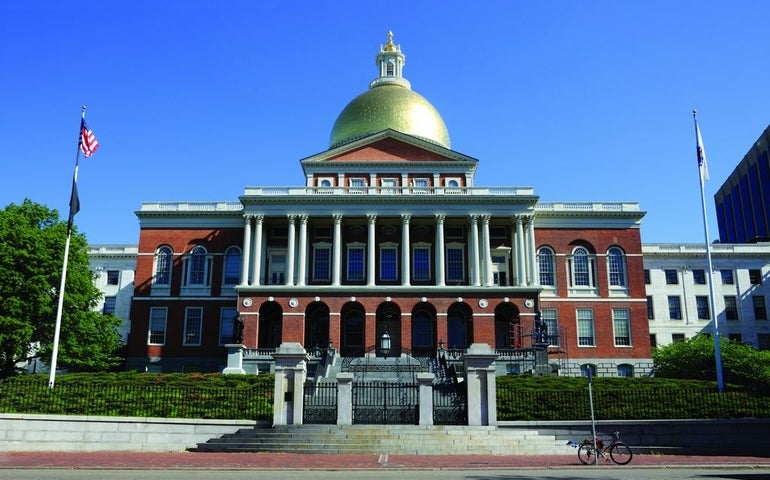Expecting decisions from legislative leaders in the next few weeks over how to start spending billions of remaining dollars from the state’s American Rescue Plan Act allocation, a coalition of advocacy groups plus a handful of lawmakers on Monday released a scorecard they’ll use to measure whether the plans prioritize racial justice.
The coalition is launching a website that it says offers a roadmap for how lawmakers can use the $4.8 billion to focus on closing structural gaps that have been exacerbated by the pandemic’s disproportionate impacts on communities of color.
The scorecard will assess spending plans on six factors: urgency, attention to structural problems like housing instability and the racial wealth divide, innovation, targeting of funds to hardest-hit populations, accountability and inclusive processes for decision-making.
“Our state legislators saw the hiking numbers of COVID leading the charts in our state. They saw the thousands of people lined up for hours in our food lines and they heard the stories of deplorable housing conditions and health concerns due to the code violations in apartments facing monthly & yearly rent increases,” Norieliz DeJesus, director of policy and organizing at La Colaborativa in Chelsea, said in a statement. “We must ensure these facts remain on the table and in the discussions as our Legislators are allocating funds to the different cities in our state. For the sake of our children that at times go to sleep hungry and worried about where they will sleep the next day, we must enact the Racial Equity Scorecard and give these children a fair opportunity out of poverty.”
The scorecard is backed by Sens. Chang-Díaz and Adam Gomez and Reps. Russell Holmes, Orlando Ramos and Danillo Sena, all of whom are members of the Black and Latino Legislative Caucus. Chang-Díaz, who is seeking the Democratic nomination for governor in 2022, is Senate chair of the Committee on Racial Equity, Civil Rights and Inclusion, and Holmes is a member of the House Ways and Means Committee.
Groups involved in the effort include the Black Economic Council of Massachusetts, the New England Area Conference of the NAACP, Amplify Latinx, the Urban League of Eastern Massachusetts, Neighbor to Neighbor, La Colaborativa, the Greater Boston Latino Network, the American Civil Liberties Union of Massachusetts and the Massachusetts Public Health Association.
The scorecard uses letter grades, and the website offers examples of how a spending plan could earn an “A”, “C”, or an “F” grade.
To earn an “A” for urgency, lawmakers would need to pass legislation committing 90 percent of the ARPA money by the end of the year. A “C” spending plan would place “large chunks of the money” into reserves, “which creates the illusion they are committed,” and a failing grade would be bestowed if half the money is not committed by Dec. 31.
Legislative leaders have expressed interest in finalizing a bill that would spend at least some of the federal funds before lawmakers break in mid-November for their next recess from formal sessions, which will run through the end of the year.
With a series of hearings on how to spend the ARPA money now behind them, Ways and Means chairs Rep. Aaron Michlewitz and Sen. Michael Rodrigues said last Wednesday that they plan to produce a bill “in the weeks ahead.”
The coalition wants to see all of the money go toward resolving “structural problems laid bare by the pandemic,” including legal aid for pandemic-related needs, workers’ health and economic vulnerability, health disparities and public health, youth supports, high-speed internet access, the child care sector, environmental disparities, economic opportunity in hard-hit communities, housing instability and the racial wealth divide. The scorecard lists road and bridge repair as an example of a problem not “either created or exacerbated by the pandemic.”
An ARPA spending bill would receive a failing grade on innovation if the money is directed largely to pre-existing obligations and its programs “require significant work to apply and lengthy wait times.” It would earn an “A” if all the money goes to new or expanded programs that “jumpstart our new normal, not to fund the pre-pandemic status quo.”
Eighty-five percent of the funds, the coalition said, should reach environmental justice communities or communities that score in the top half of the Centers for Disease Control and Prevention’s social vulnerability index. Lawmakers would fail the scorecard’s “targeting” category if they allocate the dollars based on pre-pandemic per-capita formulas and do not consider the “pandemic’s disproportionate toll on communities of color and low-income residents.”
On accountability and inclusivity, the groups want to see “a strong, real-time public-facing database” that tracks the percentage of dollars spent in hardest-hit communities and contracts awarded to minority-owned businesses, plus engagement with the Racial Equity Committee chairs or lawmakers of color on the House and Senate Ways and Means Committees before Ways and Means members vote on a draft plan.
The scorecard also asks for at least four business days between the public release of a Ways and Means plan and the deadline for lawmakers to file amendments.

